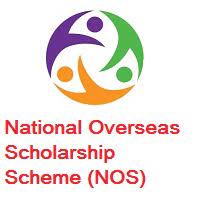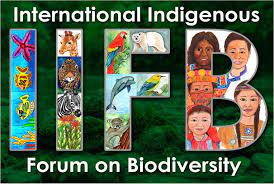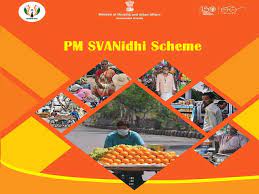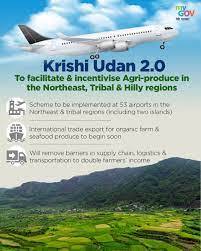Today Current Affairs: 10th December 2022 for UPSC IAS exams, State PSC exams, SSC CGL, State SSC, RRB, Railways, Banking Exam & IBPS, etc
Table of Contents
Razorpay : 1st Payment Gateway To Support Credit Cards On UPI

With the aim to further strengthen digital payments and boost India’s credit penetration, the platform announced its readiness to support Credit Card Transactions on Unified Payments Interface (UPI).
- UPI enables customers to make transactions through their bank accounts.
- Linking credit cards with UPI will ensure that customers will no longer have to carry their credit cards with them at all times for payments.
- As per RBI’s data, despite growing steadily at the rate of 30% over the last three years, remains primarily underpenetrated with only 6% of Indians having access to a credit card.
- On the other hand, UPI has recorded over 731 crore transactions in Oct 2022 alone being used by more than 40% of Indians.
- With RuPay credit cards being enabled on UPI, Razorpay merchants can begin accepting credit card payments on UPI, with minimal changes to their existing setup.
- Payment Gateways is a technology used by merchants to accept debit/credit card purchases from customers.
- It includes physical card reading devices found in brick-and-mortar retail stores and the payment processing portals found in online stores.
Wildlife (Protection) Amendment Bill 2022:

Rajya Sabha passed the Wildlife (Protection) Amendment Bill, 2022 which seeks to conserve and protect wildlife through better management of protected areas and rationalise schedules which list out species under the Wildlife (Protection) Act, 1972.
- The Rajya Sabha passed the Wild Life (Protection) Amendment Bill, 2022 which seeks to give effect to India’s obligations under the Convention on International Trade on Endangered Species of Wild Fauna and Flora (‘CITES’).
Objective of Bill:
- Protection of Endangered Species: Bill seeks to enhance punishment for illegal Wildlife trade .
- Better Management of Protected Areas: It provides for certain permitted activities like grazing or movement of livestock and Bonafide use of drinking and household water by local communities.
- Protection of Forest Lands: It is so critical because it equally inculcates in itself the protection of rights of the people who have been residing there since ages.
Proposed Amendments:
- This amendment proposed a new schedule for species listed in the Appendices under CITES.
- Section 6 has been amended to constitute Standing Committee to exercise such powers and duties as may be delegated to it by the State Board for Wildlife.
- Section 43 of the act amended which permitted the use of elephants for ‘religious or any other purposes’.
- To enable the Central government to appoint a Management Authority Section 49E has been inserted.
- To allow the Central Government to appoint a Scientific Authority to provide guidance on matters relating to the impact on the survival of the specimens on being traded.
- The Bill also empowers Central government to regulate and stop the import, trade or possession of invasive plant or animal alien species.
- The Bill also enhances the penalties prescribed for violation of provisions of the Act.
- For ‘General violations’, maximum fine is increased from 25,000 to 1 lakh.
- In case of Specially protected animals, the minimum fine of Rs. 10,000 has been enhanced to Rs. 25,000.
Bill To Amend The Multi-State Cooperative Societies Act:

A Bill to amend the Multi-State Cooperative Societies Act was introduced in the Lok Sabha recently.
- Multi-State Cooperatives: MSCS is a Cooperative Society with objects to serve the interest of the members in more than one State.
- MSCS Act, 2002 was passed to govern such cooperatives whose members and areas of operation are spread across more than one state.
- At present, India has more than 1,500 multi-State cooperative societies.
Key amendments suggested:
- To establish a “cooperative election authority”.
- To make provisions for the “appointment of cooperative information officer”.
- To appoint one or more “cooperative ombudsmen” with territorial jurisdiction to inquire into members’ complaints.
- Insert a new Section related to the “establishment of the Cooperative Rehabilitation, Reconstruction and Development Fund” for the revival of “sick multi-state cooperative societies”
- Insert Section relating to “concurrent audit” for such multi-state societies with an annual turnover or deposit of more than the amount as determined by the Centre.
- The merger of “any cooperative society” into an existing multi-state cooperative society.
National Overseas Scholarship Scheme:

Indians who have been sent abroad to study through the National Overseas Scholarship Scheme have sent their gratitude towards the Indian Government for the scholarship programme.
- National Overseas Scholarship Scheme is a Central Sector Scheme to facilitate the low income students belonging to the Scheduled Castes, Denotified Nomadic and Semi-Nomadic Tribes, Landless Agricultural Labourers and Traditional Artisans category to obtain higher education by studying abroad.
- The Scheme provides financial assistance to the selected candidates for pursuing Masters level courses and Ph.D. courses abroad in the Institutions/Universities accredited by the Government/an authorized body of that country in any fields of study.
- In each Selection Year, 125 fresh awards, subject to availability of funds, will be given under the Scheme.
- Implementing Agency: Department of Empowerment of Persons with Disabilities, under the Ministry of Social Justice & Empowerment.
- Reservation: 30% of the awards for each year are earmarked for women candidates.
Indigenous People:

At the 15th Conference of Parties (COP15) to the United Nations Convention on Biological Diversity (CBD), a group representing indigenous people stressed that the Post-2020 Global Biodiversity Framework (GBF) must work on respecting, promoting and supporting the rights of indigenous peoples and local communities (IPCL).
- Members of the International Indigenous Forum on Biodiversity (IIFB) have also stressed upon the rights of indigenous people.
- The rights of indigenous peoples and local communities, who have always been the most effective guardians of biodiversity, also need to be recognised and protected.
- The framework should follow a “human rights-based approach, by respecting, protecting and fulfilling the rights, and particularly indigenous and collective rights, and gender equity” by actively seeking ways to support and promote indigenous communities and their rights.
- The implementation of the post-2020 GBF must include traditional knowledge, practices and technologies while respecting the principles of free, prior and informed consent.
International Indigenous Forum on Biodiversity:
- The IIFB is a collection of representatives from indigenous governments, indigenous non- governmental organizations and indigenous scholars and activists that organize around the CBD and other important international environmental meetings.
- Its aim is to help coordinate indigenous strategies at the meetings, provide advice to the government parties, and influence the interpretation of government obligations to recognize and respect indigenous rights to the knowledge and resources.
9th World Ayurveda Congress And Arogya Expo 2022:

9th World Ayurveda Congress (WAC) was inaugurated recently at Panaji, Goa.
- The 9th WAC aims to showcase the efficacy and strength of the AYUSH systems of medicine at the Global level.
- Objective: To provide a global platform for all the stakeholders, including industry leaders, practitioners, traditional healers, educationists, students, medicine manufacturers, growers of medicinal plants and marketing strategists, for networking and engaging in intellectual exchange to strengthen the Ayurveda sector, envision its future, and facilitate interaction between professionals and consumers to boost Ayurveda commerce.
AYUSH (Ayurveda, Yoga & Naturopathy, Unani, Siddha and Homoeopathy) sector: - During 2014-2020, the AYUSH industry grew 17 per cent year-on-year while the Ayurveda market is predicted to grow at 15 per cent CAGR from 2021-2026.
- The Ayush Grid project was initiated by the Ministry in 2018 for creating a comprehensive IT backbone for the entire sector.
PM SVANidhi Scheme Extended:

The Prime Minister Street Vendor’s AtmaNirbhar Nidhi (PM SVANidhi) Scheme has been extended beyond March, 2022.
Provisions for the Extended Scheme:
- Extension of lending period till December 2024.
- Introduction of 3rd loan of up to ₹50,000 in addition to 1st & 2nd loans of ₹10,000 and ₹20,000 respectively.
- Extension of ‘SVANidhi Se Samriddhi’ component for all beneficiaries of PM SVANidhi scheme across the country.
- ‘SVANidhi Se Samriddhi’ was launched in January 2021 to map the socio-economic profile of the PM SVANidhi beneficiaries and their families.
PM SVANidhi Scheme:
- The scheme was announced as a part of the Economic Stimulus-II under the Atmanirbhar Bharat Abhiyan.
- It has been implemented since 1st June 2020, for providing affordable working capital loans to street vendors to resume their livelihoods that have been adversely affected due to Covid-19 lockdowns.
- A total of 13,403 vending zones have been identified so far.
- 42 lakh street vendors are to be provided benefits under PM SVANidhi Scheme by December, 2024.
- It is a Central Sector Scheme i.e., fully funded by Ministry of Housing and Urban Affairs
Krishi Udan 2.0 Scheme:

58 airports will be covered under Krishi Udan Scheme 2.0
- Krishi Udan Scheme 2.0 was announced on 27 October 2021.
- The main objective of the Krishi Udan Scheme 2.0 is to increase share of air carriage in the modal mix for transportation of Agri-produce, which includes horticulture, fishery, livestock and processed products.
- The scheme assists farmers in transporting agriculture products so that it improves their value realisation.
- The Scheme aims to ensure seamless, cost-effective, time bound, air transportation and associated logistics for all Agri-produce originating especially from North-East, hilly and tribal regions of the country.
- Few successful examples are air transportation of ‘King Chillies, Burmese Grapes & Assamese Lemon’ from Gauwahati, ‘Jackfruit’ from Tripura and ‘Litchi’ from Darbhanga.
- For facilitating and incentivising movement of agri-produce by air transportation, Airports Authority of India (AAI) provides full waiver of Landing, Parking, Terminal Navigational Landing Charges (TNLC) and Route Navigation Facility Charges (RNFC) for Indian freighters and P2C (Passenger-to-Cargo) Aircraft.
- The Ministry of Civil Aviation has also asked States to reduce sales tax on aviation turbine fuel to one perc ent for airlines under the Krishi UDAN 2.0 scheme.




